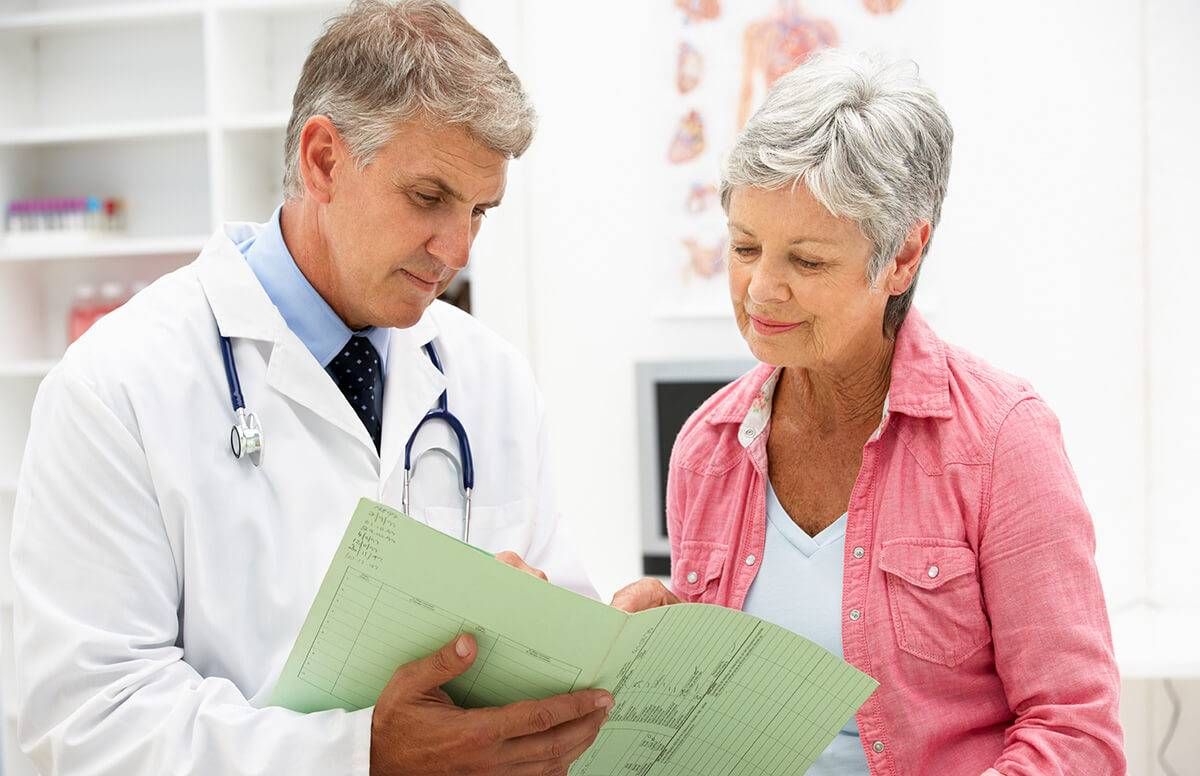Health Checks Every Woman Over 50 Should Have
Stay ahead of potential problems with these screening tools
You know you have to change the oil in your car every 3,000 miles. But what about the things that keep you running smoothly if you're a woman over 50?

Here are the recommended health checks and when to have them:
Once a Year
Well visit. Many women don’t keep track of how much time lapses between doctor visits, mammograms and other important medical screenings. But it’s essential to stay on top of your health, to help prevent problems or catch them early. Even if nothing seems wrong, see your doctor annually to discuss your health.
Your doctor will weigh you, discuss your body mass index to ensure that you maintain a healthy weight, check your blood pressure and review your cholesterol levels to monitor your heart health. And the physician will likely screen for diabetes, especially if you’re overweight.
“The once-a-year check with your family doctor is probably the best thing you can do — having somebody who can follow along and say that you’re as healthy as you say you are,” says Dr. Robert Raspa, a family physician in Orange Park, Fla.“ A yearly exam is [a time] to get a pep talk about weight management, exercise, eating good food and things that really keep you healthy for a long time. Most insurance companies cover it. It’s sort of the free benefit every single year, so you should take advantage of it.”
Many women visit family physicians. Others discuss their overall health with their gynecologists. “Most gynecologists act as a primary-care provider for their patients with assessing BMI, smoking, alcohol use and ordering screening testing,” says Dr. Sonja Kinney, medical director of the Olson Center for Women's Health at Nebraska Medical Center in Omaha. “[You can] have your blood pressure done, review current medications, get needed screening testing and obtain vaccinations.”
An annual exam is also a good time to get a flu shot and other vaccines you may need.
Depression screening. Your primary-care doctor should screen for depression at every well visit. You may be asked to complete a questionnaire when signing in, to streamline the process.
“Questions [include]: ‘In the past two weeks, have you had little interest or pleasure in doing things? Have you felt that your mood has been down or depressed?’” Raspa says. “And that’s good enough to start a conversation.”
Dental checkup. The American Dental Association doesn’t have specific recommendations about how often people should visit the dentist. Once or twice a year may be right for some people; every three months may be recommended for others. Sit in your dentist’s chair at least once every 12 months to get your teeth, gums and surrounding tissues checked. Dentists sometimes find oral cancer or signs of diseases like diabetes.
“Having healthy teeth is an important part of your overall health,” Raspa says. “There’s actually some concern that gum disease and inflammation can lead to other health conditions.”
Lung cancer screening. Starting at age 55, you should be screened for lung cancer annually if you’ve been a long-term smoker.
“Lung cancer screening starts at age 55 if you’ve had over a 30-pack-year smoking history, which is a pack a day for 30 years [or two packs a day for 15, etc.],” Raspa says. “Lung cancer has been a big killer of women.”
Every Two Years
Mammogram. Women aged 50 to 74 should have mammograms every other year, according to the U.S. Preventive Services Task Force (USPTF), an independent group of preventive-medicine experts who advise the public about health screenings. Some doctors and professional medical organizations suggest that annual mammograms would be better for certain patients. Ask your doctor what’s right for you.
“There should be a conversation — shared-decision-making — between the provider and the patient, as there are risks and benefits for taking each approach,” Kinney says.
Eye exam. Glaucoma and macular degeneration are just two silent conditions that can rob you of your vision as you age. Be sure to see an ophthalmologist regularly to ensure that your eyes remain healthy. The doctor will let you know if you need to come in more or less often than every other year.
“Get checked for glaucoma every two years up to age 65, then yearly thereafter,” Raspa says. “That’s when cataracts start showing up.”
If you have diabetes, you should see the eye doctor every year. People with diabetes are at risk of diabetic retinopathy — which can lead to blindness — and cataracts.
Bone-density test. After menopause, ask your doctor about your osteoporosis risk and the need for bone-density screening. USPTF recommends screening at age 65, unless you have risk factors at a younger age. Have the test repeated every year or two.
“It’s a low-dose X-ray of the spine and hip — they can calculate bone thickness from that,” Raspa says. “Make sure you have enough calcium and vitamin D in your diet, particularly vitamin D.”
Less Often
Pap test. Your doctor will let you know whether you need a Pap test every three or every five years, until age 65. This may mean you won’t need annual pelvic exams.
“In low-risk women who are asymptomatic, there is controversy about [pelvic exams] being a necessity,” Kinney says. “Again, shared decision-making comes into play.”
It’s still wise to see your gynecologist annually. You can discuss menopause symptoms and safe-sex practices.
Colonoscopy. At age 50, your doctor will want you to get a colonoscopy or other screening test for colorectal cancer. There are several options available, including an at-home stool test, but if you have risk factors for colorectal cancer, start with the colonoscopy.
Depending on the results of your test, the doctor will determine how soon you’ll need a repeat test or a different test. That might be anywhere from one to 10 years. Talk to your physician about the options.

